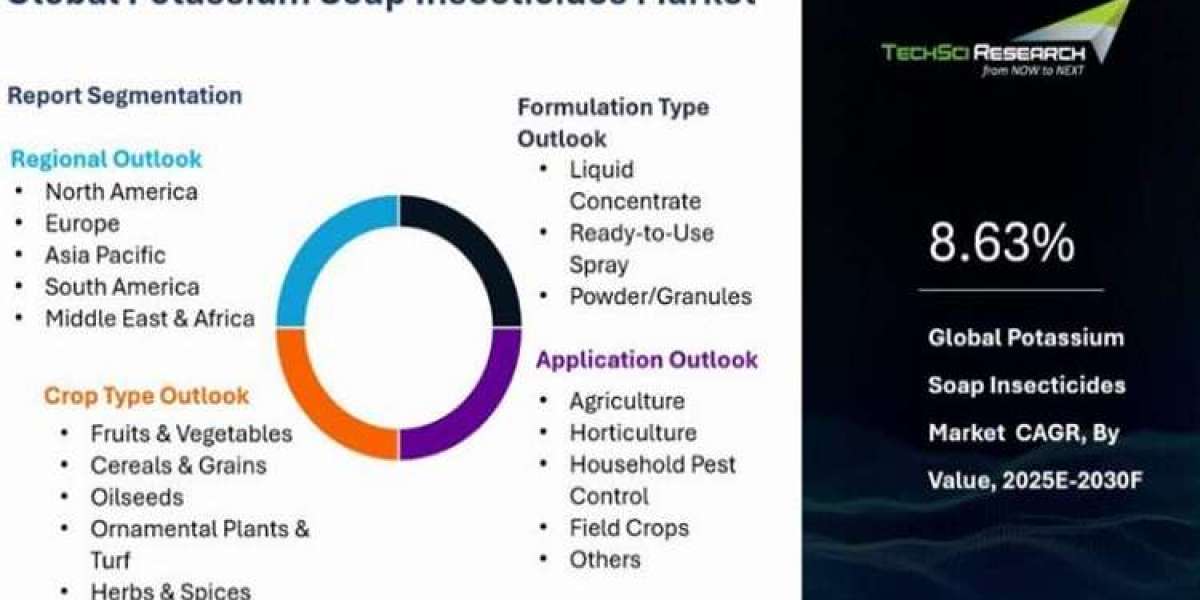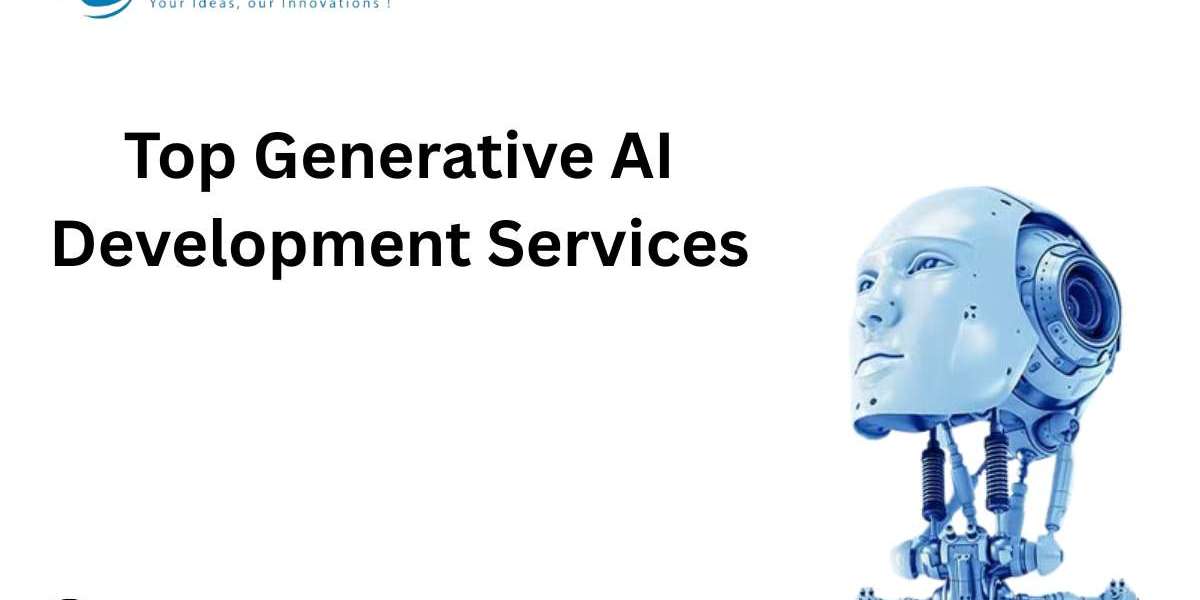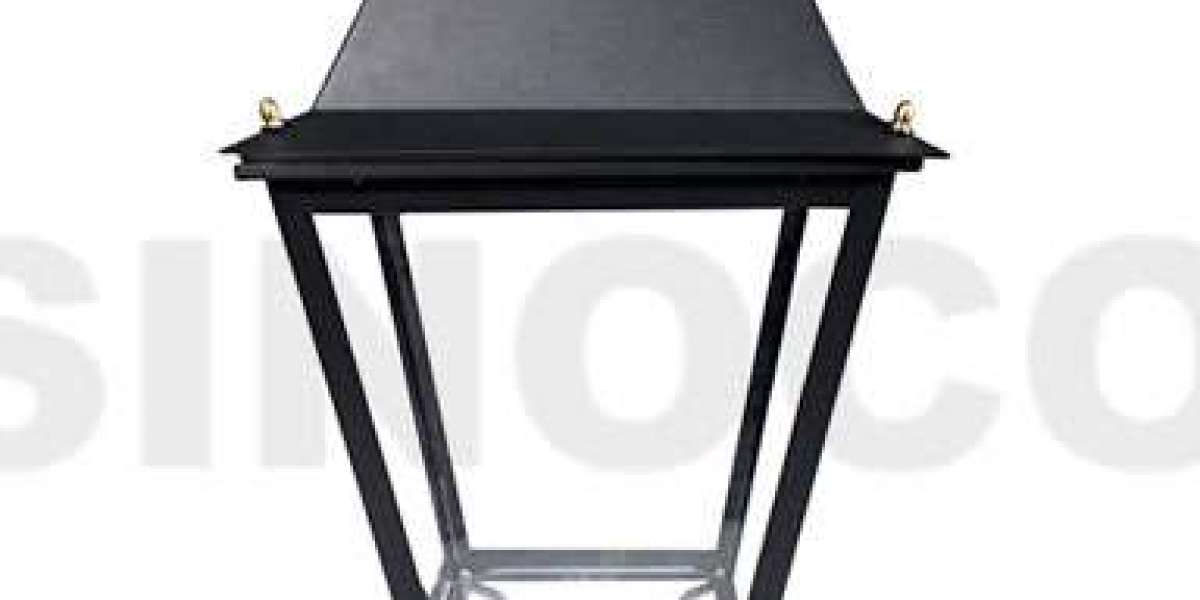According to the TechSci Research report titled “Potassium Soap Insecticides Market – Global Industry Size, Share, Trends, Competition Forecast & Opportunities, 2030F”, the Global Potassium Soap Insecticides Market was valued at USD 8.53 million in 2024 and is projected to reach USD 14.04 million by 2030, expanding at a CAGR of 8.63% during the forecast period. This growth trajectory reflects the increasing demand for environmentally responsible alternatives to conventional chemical pesticides, particularly in both commercial agriculture and home gardening.
Potassium soap insecticides, which are formulated from natural fatty acids, have emerged as a sustainable and effective solution for pest control. They are especially useful against soft-bodied pests such as aphids, whiteflies, spider mites, and mealybugs. Unlike synthetic insecticides, potassium soap products break down quickly in the environment and leave no harmful residues, making them highly suitable for organic farming and eco-sensitive environments. Their ability to selectively target harmful insects while being non-toxic to beneficial insects, pollinators, and humans adds to their appeal in modern pest management practices.
As environmental and health concerns surrounding synthetic pesticides continue to grow, farmers, horticulturists, and gardeners are seeking safer, biodegradable, and residue-free solutions. Potassium soap insecticides align well with these goals, and their adoption is increasing across a broad range of agricultural applications. Moreover, the heightened consumer preference for organically grown and chemical-free food has significantly influenced the transition towards natural pest control products, further boosting market demand.
The market is also benefiting from evolving regulatory frameworks that support bio-based and environmentally sustainable agricultural inputs. Many governments and international regulatory agencies are implementing stricter restrictions on the use of synthetic pesticides, promoting organic alternatives through incentives and certification schemes. This shift in policy is encouraging manufacturers to invest in the development of natural insecticides, accelerating the global adoption of potassium soap-based products.
Another critical growth driver is the increasing resistance of agricultural pests to conventional pesticides. As farmers face diminishing returns from chemical control methods, they are actively exploring alternatives that can offer effective pest suppression without contributing to resistance buildup. Potassium soap insecticides provide a different mode of action, making them an effective part of integrated pest management (IPM) programs aimed at delaying resistance and preserving crop yields.
In addition to agriculture, potassium soap insecticides are seeing growing use in urban and residential settings. With the rise of urban farming, rooftop gardens, and ornamental horticulture, there is greater interest in non-toxic and safe pest control options for densely populated areas. These insecticides are considered ideal for such environments due to their low toxicity, ease of application, and rapid biodegradability.
Innovation in product formulation is further expanding market potential. Manufacturers are increasingly experimenting with blending potassium soap insecticides with natural additives such as essential oils and botanical extracts to enhance efficacy and broaden their pest control spectrum. These formulations not only improve performance but also appeal to environmentally conscious consumers seeking plant-derived solutions.
There is also a notable opportunity in the research and development of advanced bio-based pesticide blends. Combining potassium soap insecticides with microbial agents or other biopesticides could lead to more potent and long-lasting products. As demand rises for comprehensive, multi-action pest control tools, companies that invest in R&D and formulation innovation are likely to secure a competitive advantage.
Furthermore, the growing popularity of certified organic food products across major economies is creating a favorable backdrop for the expansion of the potassium soap insecticides market. Organic farming continues to grow rapidly in emerging markets, where farmers are increasingly adopting inputs that comply with organic standards. As a result, market players that offer organically approved pest control solutions, including potassium soap products, are poised to benefit.
Browse over XX market data figures spread through XX pages and an in-depth TOC on "Global Potassium Soap Insecticides Market"
https://www.techsciresearch.com/report/potassium-soap-insecticides-market/27492.html
Market Segmentation Overview:
The Global Potassium Soap Insecticides Market is segmented based on crop type, formulation type, application, regional distribution, and company.
By Application:
Horticulture emerged as the fastest-growing application segment in the market. This can be attributed to rising demand for sustainable and organic pest control solutions, particularly in ornamental plant cultivation, fruit and vegetable farming, and home gardening. Consumers are placing greater emphasis on food safety and environmental stewardship, leading to higher adoption of bio-based products in horticulture.
Urbanization and the growing popularity of small-scale gardening have also contributed to the surge in demand. In these environments, users seek non-toxic pest control methods that are safe for children, pets, and pollinators. Potassium soap insecticides, with their minimal environmental impact, have become the go-to solution. Additionally, regulatory restrictions on synthetic pesticide use in horticultural exports have driven increased adoption in countries where compliance with international standards is crucial.
By Region:
Asia-Pacific has emerged as the fastest-growing region in the global potassium soap insecticides market. Several factors are contributing to this rapid expansion, including increasing awareness of sustainable agricultural practices, rising organic food consumption, and supportive government initiatives. Countries like India, China, Japan, and those in Southeast Asia are witnessing a transition toward organic and residue-free farming methods, providing a strong growth platform for bio-based insecticides.
The region is also experiencing a surge in urban and rooftop farming, further expanding the potential user base. Smallholder farmers in Asia-Pacific are increasingly drawn to potassium soap insecticides because of their affordability, ease of use, and safety profile. Additionally, governments are encouraging eco-friendly pest management through training programs, subsidies, and inclusion of biopesticides in national agricultural policies.
As urban populations rise and consumer demand for chemical-free produce grows, Asia-Pacific is set to remain the most dynamic and fastest-growing market for potassium soap insecticides over the forecast period.
Major companies operating in Global Potassium Soap Insecticides Market are:
BONIDE Products LLC
Corax Bioner Co.
Certis USA L.L.C.
Ecoworm Limited
Kao Corporation
OHP, Inc.
PROMISOL S.A.
SPAA SRL
Vellsam Materias Bioactivas S.L.
Victorian Chemical Company Pty Ltd.
Download Free Sample Report
https://www.techsciresearch.com/sample-report.aspx?cid=27492
Customers can also request for 10% free customization on this report
“The Global Potassium Soap Insecticides Market is expanding due to the increasing demand for pest control solutions in the cannabis industry. As the legal cannabis market grows, the need for effective, non-toxic pest management products becomes more critical. Potassium soap insecticides are gaining popularity in cannabis cultivation because they are organic, safe for use on edible plants, and compliant with regulatory standards for pesticide residue. This shift toward organic pest control methods in cannabis farming is boosting the market demand for potassium soap insecticides, especially in regions where cannabis cultivation is expanding.,” said Mr. Karan Chechi, Research Director of TechSci Research, a research-based management consulting firm.
“Potassium Soap Insecticides Market - Global Industry Size, Share, Trends, Opportunity, and Forecast, Segmented By Crop Type (Fruits & Vegetables, Cereals & Grains, Oilseeds, Ornamental Plants & Turf, Herbs & Spices, Others), By Formulation Type (Liquid Concentrate, Ready-to-Use Spray, Powder/Granules), By Application (Agriculture, Horticulture, Household Pest Control, Field Crops, Others), By Region and Competition, 2020-2030F”, has evaluated the future growth potential of Global Potassium Soap Insecticides Market and provides statistics & information on market size, structure and future market growth. The report intends to provide cutting-edge market intelligence and help decision makers take sound investment decisions. Besides, the report also identifies and analyzes the emerging trends along with essential drivers, challenges, and opportunities in Global Potassium Soap Insecticides Market.
Contact
TechSci Research LLC
420 Lexington Avenue, Suite 300,
New York, United States- 10170
Tel: +1-332-258-6602
Email: [email protected]
Website: www.techsciresearch.com



